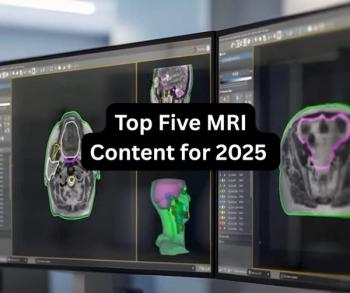
Calcium score studies reveal noncalcified plaque
Calcium scores not only reveal calcified plaque, they also show noncalcified plaque with a good positive predictive value, according to a study presented at the North American Society for Cardiac Imaging meeting in Las Vegas this week.
Calcium scores not only reveal calcified plaque, they also show noncalcified plaque with a good positive predictive value, according to a study presented at the North American Society for Cardiac Imaging meeting in Las Vegas this week.
Dr. Christian Thilo of the Medical University of South Carolina in Charleston evaluated 106 patients with noncontrast calcium score studies and contrast-enhanced CT angiography. Patients were also evaluated with quantitative catheter angiography.
The calcium score was measured in both Agatston and volume. Two blinded observers independently reviewed the noncontrast calcium scoring scans for findings suggestive of noncalcified plaque. Those findings included features of vascular remodeling and detection of hypo-attenuating areas within the vessel wall.
Researchers compared the calcium scoring scans with lesion morphology at CTA and catheter angiography. The first observer identified 37 suspicious lesions suggestive of noncalcified plaque; 32 of these were confirmed by contrast-enhanced CTA. The second observer identified 35 suspicious lesions as suggestive of noncalcified plaque; 29 of these were confirmed by CTA.
The positive predictive value of noncontrast CT to find noncalcified lesions was 86%, indicating excellent interobserver agreement, Thilo said.
Among the lesions detected by the two observers, catheter angiography showed stenosis greater than 50% in 12 and 13 lesions, respectively.
"Checking for noncalcified plaques on calcium score studies may allow identification of patients with more active disease," Thilo said.
Newsletter
Stay at the forefront of radiology with the Diagnostic Imaging newsletter, delivering the latest news, clinical insights, and imaging advancements for today’s radiologists.












